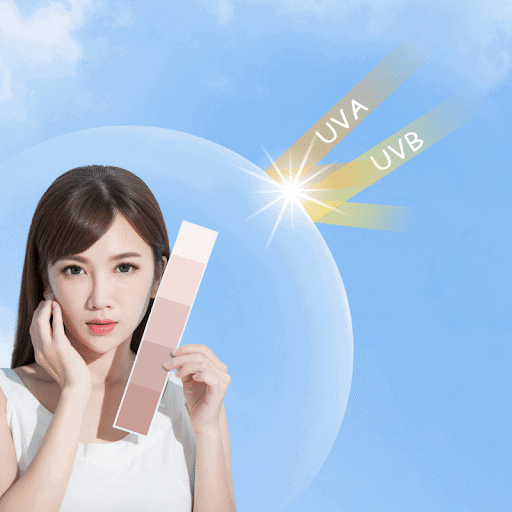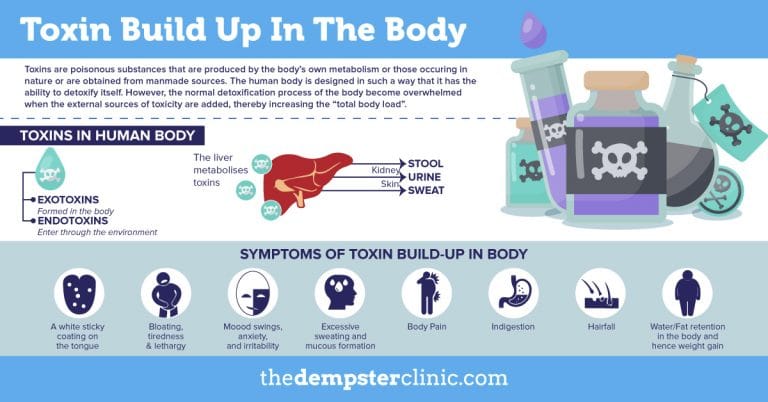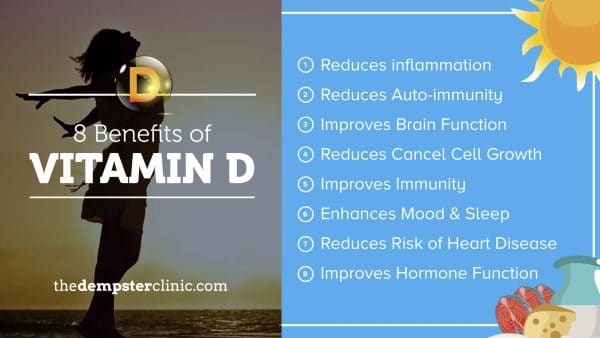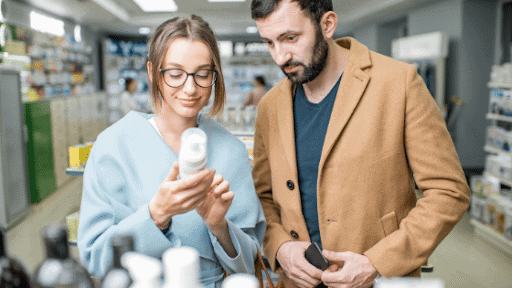You probably know that wearing sunscreen is important, especially as you start to spend more time outside during the summer months. But what if you only think your sunscreen is doing its job?
According to a report issued by the Environmental Working Group (EWG), over half of the sunscreens on the market today contain toxic ingredients. Furthermore, an astonishing 2019 report reveals that after about one day of using an unsafe sunscreen, your body has already absorbed the toxins into your bloodstream. So, not only could you be using a sunscreen that provides very little protection from harmful radiation, but you could also be making matters worse by slathering dangerous chemicals all over your skin!
Given the EWG’s recent eye-opening report, it is important to make sure you know how to spot an effective sunscreen versus a faulty one. In order to make this as quick and easy for you as possible, I have created this basic guide, or “cheat sheet” for choosing the right sunscreen.
WEARING THE RIGHT TYPE OF SUNSCREEN CAN LITERALLY SAVE YOUR LIFE
Excessive exposure to ultraviolet (UV) radiation from the sun can damage the DNA in your cells. This increases your risk of developing wrinkles, fine lines, burns, and skin cancer. In fact, skin cancer accounts for roughly one third of all new cancer cases in Canada. Furthermore, the percentage of Canadians with skin cancer is growing at an alarming rate.
So, next time you are tempted to skip the sunblock, remember that wearing (safe) sunscreen could save your life.
SPF: FACT OR FICTION?

SPF stands for Sun Protection Factor, which refers to how long you can wear a particular sunscreen and be protected from ultraviolet radiation (UV) from the sun.
Understandably, people see the acronym “SPF” followed by a high number and assume that they are buying a quality sunblock. However, this term is often misleading… Sometimes SPF only refers to protection from certain types of UV radiation.
Put simply, the sun generates two types of UV rays that impact your skin: ultraviolet A (UVA) rays and ultraviolet B (UVB) rays.
UVA rays are the worst type of solar electromagnetic radiation. This is why it is important to use a sunscreen brand with ingredients that shield you from both UVB and UVA rays! Make sure that the brand you buy is “Broad Spectrum,” since this refers to coverage against both UVA and UVB rays.
CHEMICAL VS MINERAL SUNSCREENS:
WHICH IS BETTER?
Overall, mineral sunscreens are much safer than chemical sunscreens. Chemical sunscreens seep into your body through your skin, and many of them contain harmful ingredients that essentially poison your bloodstream.
In contrast, mineral sunscreens contain safer active ingredients: Zinc Oxide and/or Titanium Dioxide. Another benefit of mineral sunscreens is that they usually remain on the outer surface of your skin. They “work their magic” by reflecting the sunlight away from your skin rather than soaking chemicals into your skin.
Even though they are preferable, mineral sunscreens are not 100% perfect. Often, they appear in your sun lotion in the form of nanoparticles, which can be harmful to marine ecosystems and may even pass your brain-blood barrier. These are generally safe, although spray mineral sunscreens may incite lung damage when inhaled.
Due to the complicated nature of choosing a “safe” sunscreen, I have created the following list of the best and worst sunscreens in 2019 to help you select a safe sunscreen without wasting too much time in the sunblock aisle!
THE 9 BEST SUNSCREENS OF 2019
Take a look at the following list of eight quality, ultra-safe sunscreens. Each one has its own unique benefits. Of course, each one of these safe sunscreens is mineral based, free from harmful toxins, and provides broad spectrum protection.

1. Lovefresh Sun + Sport Stick SPF 30
Lovefresh, a reputable luxury Canadian skin care line, is committed to creating a wide variety of skin care products that are non-toxic and all-natural. The expert combination of Non-Nano Zinc Oxide and Raspberry Seed Oil naturally create a shield of SPF 30. Additional natural ingredients like shea butter, coconut oil, beeswax, Vitamin E, and Candelilla wax blend together to form the perfect skin-protecting sun stick.
2. Ava Isla Pure Untinted Ultra Matte SPF 45
This Ecocert organic moisturizer is a lightweight, ultra-matte mineral sunscreen consisting of 15% Zinc Oxide. This is fortified by several other pure, natural ingredients. If you like to wear makeup, this particular SPF moisturizer can double as a primer. Since it is lightweight and dries rapidly, it is ideal for oily, combination, and normal skin types.
3. BIODEF Sunscreen Spray SPF 30
Do you prefer to spray rather than slather? This vegan, fair trade, coral-reef safe mineral sunscreen spray by Zorah Biocosmetiques is free of nanoparticles and has the coveted stamp of approval from Health Canada. Additionally, it consists of organic, non-comedogenic ingredients that help prevent photosensitive reactions.
Better yet, this is a game-changing mineral sunscreen spray to use if you enjoy swimming or engaging in other types of water activities. Simply reapply after every 40 minutes of time spent in the water.
4. Cyberderm Simply Zinc Ultra SPF 50
Cyberderm Simply Zinc Ultra SPF 50, another Ecocert-approved lotion, is comprised of 25% Zinc Oxide and contains Norwegian Spruce Extract, a luxury ingredient known for its potent antioxidant properties. This lightweight, sheer mineral lotion gives you a slight “illuminating tint,” adding a little pizzazz to your complexion.
5. Sunology Mineral Sunscreen SPF 50
If you are committed to cruelty-free, eco-friendly products, then you will love the Sunology Mineral Sunscreen! The EWG endorses Sunology’s environmentally-friendly practices, and this mineral sunscreen lotion also has approval from Leaping Bunny.
Since this SPF lotion consists of calming essential oils and is free of irritants like perfumes or parabens, it is an excellent option for sensitive skin.
6. LASPA Moisturizing Mineral Sunscreen SPF 30

Health Canada has clinically tested and approved this 100% Canadian sunscreen brand, deeming it a “Natural Health Product.” Since it is gentle enough for both children and adults with sensitive skin types, it is especially handy for families with young children.
Like the Sunology Mineral Sunscreen, the LASPA moisturizing cream is an alluring option for the environmentally-conscious shopper; it is biodegradable, cruelty-free, and comprised of certified organic ingredients.
LASPA’s secret ingredients are the antioxidants derived from the natural Rosemary and Green Tea. Together, these natural extracts soothe irritated skin and help prevent cellular damage.
7. Coppertone Pure & Simple SPF 50
This water-resistant, hypoallergenic mineral sunscreen lotion has a generous broad spectrum SPF of 50, shielding your skin from both UVA and UVB rays. Additionally, it has no added perfumes, making it a great option for individuals who are sensitive to synthetic scents.
8. The Perfect Sunscreen by Consonant Skin Care
This nourishing SPF mineral sunscreen is 100% natural and, according to the Huffington Post, the “Sunscreen Holy Grail.” Why? Well, it stands out from other all-natural sunscreens because it does not leave behind even a trace of residue. Another advantage is that it contains exclusive micronized Zinc Oxide and Titanium Dioxide, providing a strong barrier between your skin and UVA/UVB rays.
If your skin is thirsty for a little extra moisture, then you might relish in the naturally hydrating rice bran oil, grape seed, and aloe vera extracts.
9. Earth Mama Kids Uber-Sensitive Mineral Sunscreen Lotion SPF 40
If you’re on a quest for the safest sunscreen for your child, the Kids Uber-Sensitive Mineral Sunscreen Lotion by Earth Mama Organics is especially safe for sensitive, young skin. From the 265 highest scoring “green” sunblocks in the EWG’s 2019 Sunscreen Guide, this pediatrician-tested lotion is among the 27 top-scoring sunscreens for children and babies. In addition to being water-resistant and containing Non-Nano Zinc Oxide, it is free from harmful chemicals, artificial scents, and parabens.
The secret behind this gentle, non-irritating formula? A generous amount of soothing organic colloidal oatmeal and shea butter.
CONSIDER MAKING YOUR OWN SUNSCREEN
Another safe option is to make your own sunscreen, which gives you the piece of mind of handling each ingredient yourself. While there are plenty of DIY sunscreen recipes floating around the web, just make sure the recipe you choose contains non-nano Zinc Oxide. I recommend this particular recipe for homemade sunscreen with essential oils from One Essential Community.
THE WORST SUNSCREENS IN 2019
Now that you know eight of the safest sunscreens on the market, let us take a look at some blacklisted sunscreens. If you see one of these in the aisle at the store, turn around and walk the other way as quickly as possible!
Remember, the hallmark qualities of a terrible sunscreen are:
- SPF that fails to protect you from UVA rays in addition to UVB rays
- Synthetic, toxic chemicals
Here are a few chemicals to watch out for:
- Ecamsule
- Oxybenzone
- Retinyl Palmitate
- Avobenzone
- Octocrylene

The side effects of these chemicals can be weighty, including hormone disruption problems like damage to reproductive thyroid hormones, sperm abnormalities, lower sperm counts, and overall impaired fertility in men.
Retinyl palmitate, which is a form of Vitamin A, is a popular ingredient in anti-aging skin care products. Interestingly, when you apply retinyl palmitate to sun-exposed skin, it can have opposite effects. In fact, studies have shown that using sunscreens with this substance can increase your risk of skin cancer or Vitamin A toxicity.
Additional ingredients to avoid include parabens, phthalates, and synthetic musks. So, although you may have grown up associating coconut sunscreen with fun, happy-go-lucky sunny days, make sure to choose sunscreens with naturally-derived scents!
In order to compile a list of the most dangerous sunscreens, I evaluated them based on whether or not they provide protection against both UVB and UVA radiation. Additionally, I looked at the types of chemicals used in each sunscreen.
Without further ado, here is a list of some of the most unsafe sunscreens on the market:
- Panama Jack Sport Sunscreen (SPF 50 & 85)
- NO-AD Sun Care Sport Continuous Spray Sunscreen (SPF 50)
- Neutrogena Sensitive Skin Sunscreen (SPF 60)
- Up & Up Sport Sunscreen Spray (SPF 15, 30 & 50)
- Neutrogena Ultra Sheer Dry-Touch Sunscreen (SPF 70, 85, & 100)
- NO-AD Sun Care Sport Continuous Spray Sunscreen (SPF 50)
- Banana Boat Kids Continuous Spray Sunscreen (SPF 100)
- Up & Up Kids Sunscreen Spray (SPF 50)
- Equate Baby Sunscreen Lotion (SPF 70)
- CVS Health Children’s Clear Spray (SPF 50 & 70)
Although this list is a good start, it is only a sampling of the long list of sunscreens to avoid. In order to view the full EWG list of sunscreens in order of the most unsafe to the safest, check out this list of sunscreens in descending order, with the first sunscreen listed posing the most health risks. You can also sign up to receive a free PDF of the EWG Guide to Safer Sunscreens!
THREE THINGS TO REMEMBER WHEN USING SUNSCREEN
- When applying sunscreen, remember to use it on all areas of exposed skin. According to a recent study, people often forget to use SPF protection on their lips, ears, and the area surrounding their eyes.
- It is best to use other methods as well, instead of relying solely on sunscreen. For example, try to avoid excessive exposure to the sun during peak hours. Additionally, try to complement your sunscreen use with protective gear like sunglasses and wide-brimmed hats.
- Do not avoid the sun completely. Being in the sun sans sunscreen for ten to thirty minutes a day is actually a good thing. In fact, sunlight is the most effective way to absorb Vitamin D, an essential vitamin that many people lack. The consequences of Vitamin D deficiency include depression, cancer, cardiovascular disease, osteoporosis, and multiple sclerosis.

LEARN MORE WAYS TO IMPROVE YOUR HEALTH AT THE DEMPSTER CLINIC- CENTER FOR FUNCTIONAL MEDICINE
Without a doubt, using a safe sunscreen is an important part of protecting your health. But this is just one piece of the puzzle. The foods you eat, the way you use technology, and even your household cleaning products are just a few more examples of how your lifestyle might be hurting your health without you even realizing it.
If you are interested in learning more about ways you can improve your health, I encourage you to schedule an appointment at my clinic. At The Dempster Clinic- Center for Functional Medicine, I will partner with you to analyse your specific needs and address any other health concerns.
Please take advantage of my Complimentary 15-minute Discovery Session, which is available for all prospective patients. This session can take place over the phone or at the clinic in person. It gives you a chance to learn more about the services I offer and how they can help you find your best health.
Please schedule an appointment today! Your best health awaits.
Dr. John Dempster, ND
The Dempster Clinic- Center for Functional Medicine


